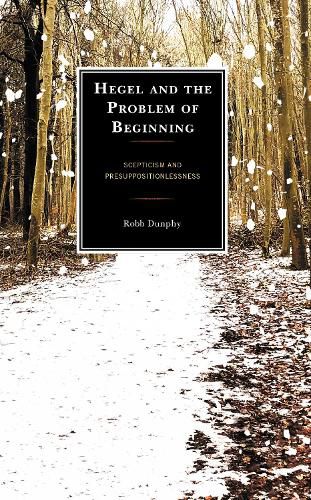Readings Newsletter
Become a Readings Member to make your shopping experience even easier.
Sign in or sign up for free!
You’re not far away from qualifying for FREE standard shipping within Australia
You’ve qualified for FREE standard shipping within Australia
The cart is loading…






Hegel opens the first book of his Science of Logic with the statement of a problem: "The beginning of philosophy must be either something mediated or something immediate, and it is easy to show that it can be neither the one nor the other, so either way of beginning runs into a rebuttal." Despite its significant placement, exactly what Hegel means in his expression of this problem, and exactly what his solution to it is, remain unclear.
In this book Robert Dunphy provides a detailed, critical engagement with Hegel's problem of beginning, and with the various putative solutions that Hegel might be thought to put forward. The book also provides original interventions into discussions concerning Hegel's wider logical project, the relationship between his Logic and his Phenomenology, and his engagement with the Pyrrhonian skeptical tradition.
$9.00 standard shipping within Australia
FREE standard shipping within Australia for orders over $100.00
Express & International shipping calculated at checkout
Hegel opens the first book of his Science of Logic with the statement of a problem: "The beginning of philosophy must be either something mediated or something immediate, and it is easy to show that it can be neither the one nor the other, so either way of beginning runs into a rebuttal." Despite its significant placement, exactly what Hegel means in his expression of this problem, and exactly what his solution to it is, remain unclear.
In this book Robert Dunphy provides a detailed, critical engagement with Hegel's problem of beginning, and with the various putative solutions that Hegel might be thought to put forward. The book also provides original interventions into discussions concerning Hegel's wider logical project, the relationship between his Logic and his Phenomenology, and his engagement with the Pyrrhonian skeptical tradition.